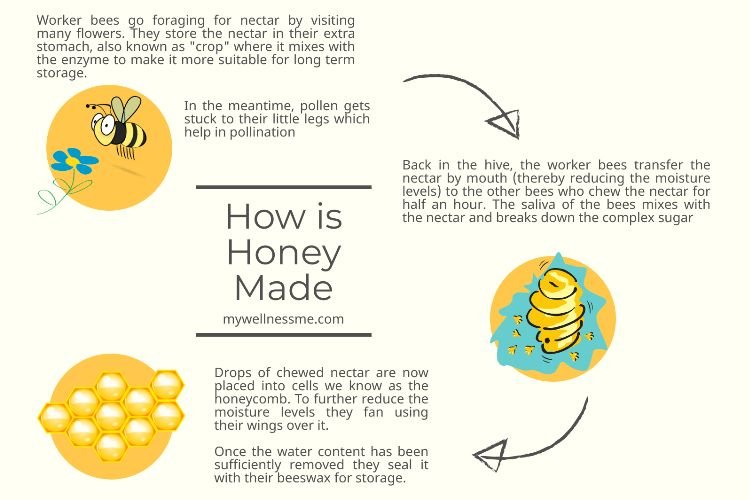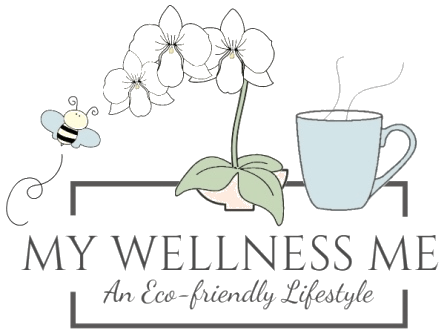Save the bee.
They don’t get the buzz they deserve.
The maker of the sweet honey and the carrier of the unpleasant sting is the undisputed number one pollinator in the world. (Also, check out these non-bee pollinating agents.)
We can write as many pages as the endless spectrum of plants and flowers that depend on these nature-balancing, eco samurai for their survival. Then we’d somewhat be doing justice to the importance of bees to the ecosystem and us.
Just one stat from a report from the UN’s Food and Agriculture Organization reveal how vital they are to the human race. About a third of all plants and related products we consume depend on our buzzing yellow and black striped friends for pollination.
In other words, should something bad happen to them then we are staring down a dark tunnel.
Sadly, bee numbers have been steadily dwindling. Let’s look at some possible reasons as to why this is happening.
Problems Facing the Bee
Our carbon footprint is burgeoning and we need to do something about it. Climate change leads to habitat loss affecting all living things and bees are not spared. The cold-blooded insects tend to be inactive during the winters and only buzz around with excitement for much-needed nutrition when spring is in the air.
With the unpredictable weather, flowers also get confused and do not bloom at the right time. This leaves bees with less than adequate food sources.
As much as we try to avoid taking the blame, there’s no doubt we are also buzzkills (excuse the attempt at the pun). The rising population and the need for development means we raze down lands that hold bee-friendly flowers.
The use of pesticides is another big issue. How can something that protects crops be harmful for the bee? Not all of them are to blame, however; just one in particular called neonicotinoids are fatal to bees. These pesticides can damage the insect’s nervous system and lead to instant death.
If they don’t kill the bees outright, neonicotinoids disorient them enough that they cannot find their way back to the hives, resulting in colonies suffering. The good news is that these pesticides are gradually being banned.
If these problems continue then bee numbers can reduce to a point where it’s bad for them. In this case, what’s bad for them is very bad for us. Because they are extremely important to the way we live.
Why Bees Matter So Much to Us
Bees play a vital role in the existence of the food we put on our table.
Almonds, asparagus, avocados, blueberries, broccoli, celery, cherries, citrus fruit, cranberries, cucumbers, kiwis, melons, soybeans, squash, and sunflowers!
Every item in this fun grocery list requires the bee’s intervention to thrive.
If you are into wildcrafting and like to forage for food, some common flowers and berries may not be available without the presence of bees.
In fact, about 90 percent of our nutrition come from crops that are pollinated by bees.
To put that into perspective, over 800 million people in the world suffer from lack of food. Not to mention, our population is expected to reach nine billion in thirty years’ time. The bottom line is that we need as many bees are possible gracing our planet.
Their other contributions to the planet
Besides world hunger, bees also ensure that the dietary ration of our animal friends are stocked and up-to-date, by pollinating their favorite flowers and plants. This helps keep the delicate balance in the food chain.
Moreover, these buzzing striped warriors of the environment help preserve wildlife habitats. Forests and woodlands would suffer without bees pollinating them. Trees like the willow would dwindle without the humble bumble.
Even your own garden would suffer in their absence, and so would insects, birds and many other creatures living in them.
Honey bees pollinate cattle feed such as clover and alfalfas. Oilseeds, one of the main ingredients of beef cattle diet, come from plants such as sunflower that need bees to pollinate them.
The meat industry would be severely hit without bees pollinating these plants. Plus, countless manufactured products that come from cattle, such as dairy, would be severely affected.
And what of the supply of the sweet nectar – honey? I won’t go into details but here’s a quick illustration of how honey is made.

So far we’ve painted a grim picture of the apocalypse.
Does all this mean that bee extinction can lead to something really dark like global famine?
Does the human race have to again fall back on its ability to ride out the consequences like a champion after doing something really dumb?
Not at all, at least regarding the first question. There are other foods in our diet that do not require pollination by bees. But there are plenty of nutrition we will miss that will make us a lot less healthy.
To save the bee, we need to offer them all the help they can get and right now, and they’re getting some from an unlikely source.
Bees Love the Lockdown
The current pandemic has been a sting in the bum for all of us.
But bees may have a different view of the lockdown.
One of the biggest gains in these tough times has been the reduction in air pollution.
Fewer cars on the roads and consequently less fumes makes it easier for bees to forage, as they can pick up floral scents more easily. Otherwise, it’s hard for bees to detect their food and they end up travelling farther then they should.
Plus, fewer vehicles means less chances of being road kills. One study in 2015 indicated that 24 billion bees and wasps were killed in North America annually.
But the lockdown will end one day and the responsibility will once again fall on us. So, what can we do to save the bee?
What You Can Do to Save the Bee
Do not use pesticides and herbicides
As already mentioned, pesticides can be a literal killer. Even the “organic” ones that you get on the market may have some nasty surprises in store. The best thing to do here is look for natural alternatives. For example, just get some cardboard boxes and let the earthworms wriggle their magic.
Make a bee garden
Plant flowers and herbs that bees prefer. Ideally, use flowers (you can also plant edible flowers for more benefits) that are native to the area and bloom at different times. Some bee species are active around the year and will love that. And while you’re at it, keep a container of water close by; worker bees need to rehydrate after putting in a shift.
Support local farmers
Shop from your local market as much as possible. Promoting them is supporting the bees.
Border your fruits and vegetables
Grow native flowers around your fruits and vegetables. This will not just help pollinate your crops but also attract other pollinators such as wasps that control crop pests.
Keep a bare patch
While mulching the soil keep a bare patch of ground. Seventy percent of all bee species require a nest in the soil to rear their offspring.
What are your impressions of this wonderful creature? Do you think we can do more to save the bee? Let us know in the comments.


12 comments
A much-needed reminder of the importance of bees — thank you for this! I plant wildflowers each year to make sure the bees can survive into the next year. You’ve given me some other really good ideas too so this was great to read!
Thanks Molly. I am happy that you found some value in the post. And it’s so great that you’re doing something for the bees. 🙂
The pandemic has been an eyeopener to the amount of pollution the world puts out and how that pollution is affecting so heavily the plant, animal, and insect realms, so I loved reading more specifically about how the pandemic has brought good changes for bees.
I am hopeful people who are having their eyes opened will be more conscious and eco-friendly as we move forward. I love the honey we get from bee farms near us; it is fresh with the taste of the clean land and that is something I want to preserve.
Thanks for sharing this!
🙂 The current scenario has been difficult for all of us but the silver lining (if you can call it such) is that flora and fauna seem to be enjoying a much-needed respite. Thanks for your lovely comment.
I absolutely love all your bee-related puns, they made me chuckle! Planting for wildlife and pollinators is something we’ve tried to incorporate into our garden and orchard and I’m happy to say with quite a lot of success. One of my long term ambitions is to have our own hive so fingers crossed that will happen one day. A really helpful and informative post, thank you for writing this x
I am happy you enjoyed the post (and the puns :)) I am also glad that you are doing something for our pollinators. And the very best of luck for your hive. Thanks again.
I love bees and this post was so interesting. I don’t know if you’ve read ‘the Bees’ by Laline Paull but it’s a really fun, interesting piece of fiction about bees and what they go through in their lives. Thanks for sharing, great post x
I am happy you enjoyed my post. I will surely check out Laline Paull’s work. Thank you 🙂
This post was such an interesting read! Lockdown has been so helpful to open everyone’s eyes. Helping bees can be so easy with the right flowers and without needing a garden as you said. Thanks for sharing x
You’re welcome. You’re right, if there’s one silver lining with the current pandemic, it’s how other living creatures are benefiting. 🙂
What a great and full explanation of why bees are so important to us all. I’m already a bee supporter of sorts. I’m hoping more will read and do their part to help. Thanks for sharing,
You’re welcome and I am glad you found the post useful. Extra happy that you’re a bee supporter 🙂
Comments are closed.